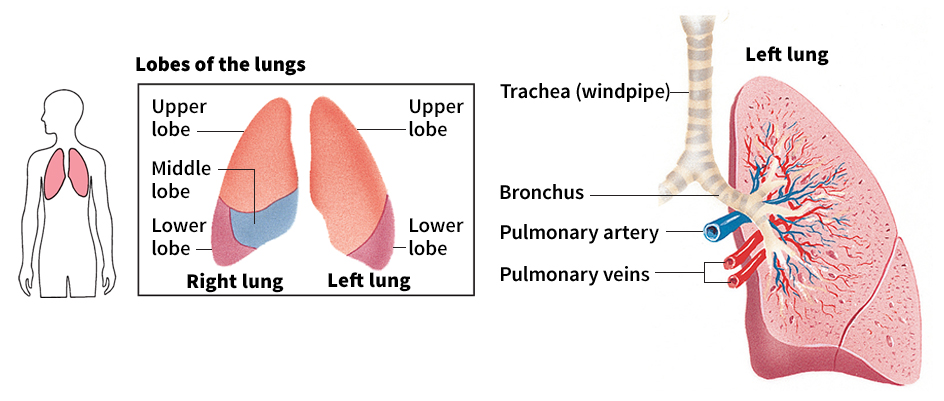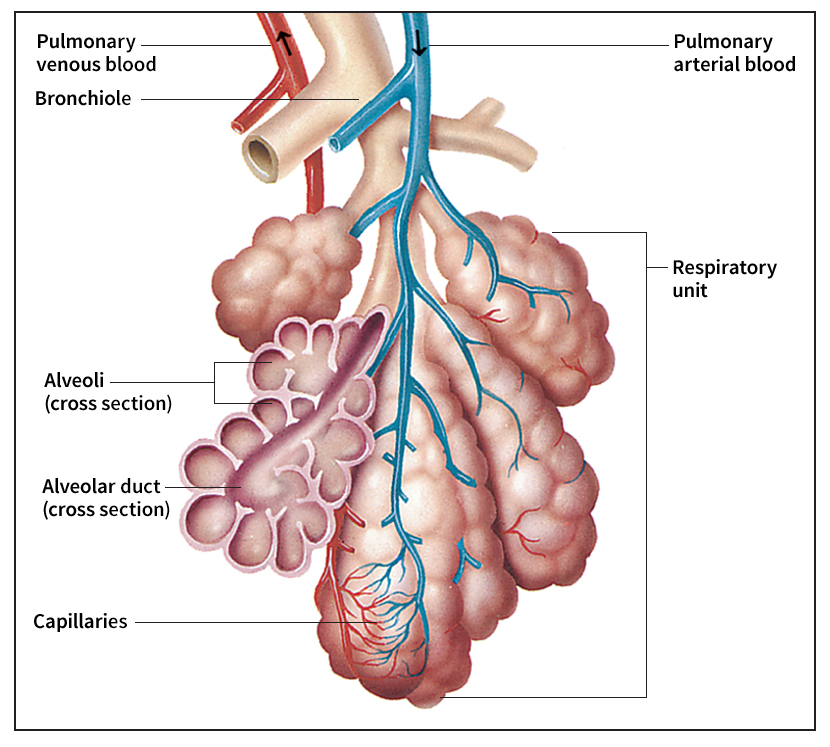Chronic obstructive pulmonary disease (COPD) is a common group of lung diseases in which the ability to force air out of the lungs is impaired (damaged). Patients with COPD often have chronic cough, excess production of mucus, and shortness of breath. Patients with severe COPD may have a periodic worsening of symptoms, often caused by respiratory infections.
Chronic obstructive pulmonary disease results from long-term exposure to irritating particles or gases, especially tobacco smoke. This exposure leads to lasting inflammation of the bronchi (airways to the lungs), a condition also known as chronic bronchitis. In COPD, the alveoli (tiny air sacs in the lungs) can also be destroyed, a condition called emphysema.

Physicians diagnose COPD using tests of lung function called spirometry. For smokers, the most important element of treatment is to stop smoking. Physicians also recommend certain vaccinations to help prevent infections. Inhaled medications can open the airways and decrease inflammation, helping to relieve shortness of breath. However, some patients with severe COPD may need to breathe supplemental oxygen. In extreme cases, patients may need surgical therapies, such as a lung transplant.

See also Bronchitis ; Emphysema .
